Catagen says ClimaHtech Green Flight is developing its new system to expedite delivery of SAF to market without delays caused by lengthy infrastructure construction times, extended approval processes or reliance on conventional electricity channels. It is this speed to market which has attracted both Shell and Ryanair to sign agreements. Catagen claims that last year it was the first to submit a SAF sample to the EU SAF Clearing House and is now progressing fast-track certification via the ASTM D7566 Annex 1 approved pathway.
The company said its production units each would be capable of producing 1 million litres of SAF per year by using renewable energy to convert industrial waste streams, but did not specify what those feedstocks were or from where they would be sourced.
It estimated that its well-to-wing emissions would be 90% lower than those of fossil fuels produced and delivered by conventional methods.
As well, it said, pre-production units were already operational, supported by the UK Department for Energy Security and Net Zero, and its first-of-a-kind production system would reach commercial operation “in a short time horizon”.
Mel Courtney, CEO of ClimaHtech Green Flight, said escalating SAF blending mandates in the UK and Europe required significant and rapid production.
“The UK has a mandate to have 10% of flights using SAF by 2030, with the EU having a 70% target by 2050,” said Courtney. “On current supply, these targets are ambitious, with the International Air Transport Association currently estimating demand surpassing 360 million tonnes by 2050, up from 1 million tonnes that were available in 2024.
“To reach these targets, we need technologies that can be scaled up alongside the development of surrounding infrastructures around airports.
“In the UK, challenges around energy security have been made clear, hence the push from government to increase our use of renewables in the grid.
“Our approach to SAF should match this approach and be accessible to the market where it is needed to be deployed.”
The company’s focus on SAF development close to the customer base has resonated with both Ryanair, Europe’s largest airline, and refining giant Shell.
“Progressing towards our sustainability goals depends on securing scalable and affordable SAF,” said Steven Fitzgerald, Ryanair’s Director of Sustainability and Finance. “Catagen’s decentralised SAF model allows production to be brought closer to demand, enabling faster deployment and reducing the bottlenecks that slow down traditional SAF projects. We see this as a critical pathway to reducing our emissions while continuing to deliver affordable travel.”
Shell said the aviation industry’s shift to SAF needed more fuel, faster.
“Shell Aviation is committed to scaling sustainable aviation fuel, but the industry needs both volume and speed,” said Ken McHutcheon, Supply and Operations Manager of Shell Aviation Ireland.
“Catagen’s decentralised, modular approach provides a new way of producing SAF that can complement centralised facilities, shorten timelines and provide more flexible access to fuel. This mode has the potential to reduce reliance on imported SAF, increase energy independence, unlock new markets and accelerate the industry’s journey to net zero.”
Catagen said that with the Ryanair and Shell offtake agreements in place, it was positioned to scale a global network of decentralised SAF production units “offering production sites up to 10 million litres”.

(Left to right) Mel Courtney, CEO ClimaHtech Green Flight; Dr Andrew Woods, Chair of ClimaHtech Green Flight and CEO of CATAGEN; Steven Fitzgerald, Director of Sustainability & Finance, Ryanair; Ken McHutcheon, Supply & Operations Manager, Shell Aviation Ireland; and Alicja Gajewska, Sustainability Manager, Ryanair
Top photo: Ryanair

Tony Harrington
Correspondent


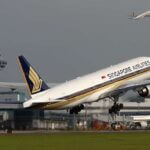
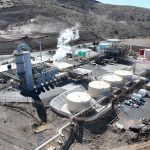
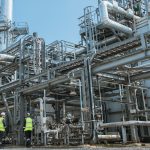
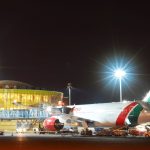

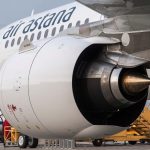

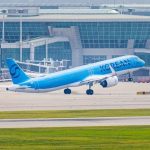





More News & Features
News Roundup October 2025
XCF plans three new Australian SAF plants, while Wagner and FlyOro activate blending facility
UK government starts new consultation on SAF revenue certainty mechanism
African Development Bank and Japanese industrialist unite to explore SAF production in Africa
Cirium analysis challenges assumptions between aviation growth and environmental impact
LanzaJet and KMG agree to progress SAF production project in Kazakhstan